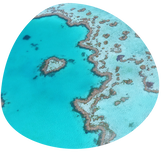Clinical Student Placement Service Provision and Adjustments Policy
Next Challenge support student placements and offer placements annually.
Clients are only seen by students with written parent consent.
Students are directly and indirectly supervised by Next Challenge staff members.
It is the University's responsibility to make 'reasonable adjustments' for students with a disability or medical condition to undertake placement activities. This includes ensuring that appropriate adjustments are arranged by the university and communicated with Next Challenge.
Where it is not possible for a student to participate in placement activities because of a disability or medical condition, the University will endeavour to provide alternative experiences that will allow for the learning outcomes of the unit or course to be met.
Next Challenge will require:
Reasonable adjustments Next Challenge may make:
Date written: February 2021
Due for review: February 2022
Clients are only seen by students with written parent consent.
Students are directly and indirectly supervised by Next Challenge staff members.
It is the University's responsibility to make 'reasonable adjustments' for students with a disability or medical condition to undertake placement activities. This includes ensuring that appropriate adjustments are arranged by the university and communicated with Next Challenge.
Where it is not possible for a student to participate in placement activities because of a disability or medical condition, the University will endeavour to provide alternative experiences that will allow for the learning outcomes of the unit or course to be met.
Next Challenge will require:
- A medical certificate from the students doctor/ specialist approving the placement conditions and length. In the instance of pregnancy, the student will require written approval to participate in the placement beyond 34 weeks. The doctor is required to specify any conditions around this.
- A full copy of immunisation history prior to commencement of placement to ensure current immunisations for Rubella, measles and chickenpox.
- The student is required to bring their own form of hand sanitisation gel to placement, if presenting with medical concerns that may be jeopardised by regular contact with children. It is the students responsibility to take this to all community visits and to use this before and after interactions.
- The student is to provide a list of known medical appointments at the start of the placement and then as they arise during the course of the placement. This allows the supervisors to plan around these appointments and communicate information with the schools.
Reasonable adjustments Next Challenge may make:
- The mandatory requirements listed above will be emailed to the student 4 weeks before commencement date, or at the time of contact from the university. Next Challenges student coordinator will email these requirements to the student in their pre-orientation booklet.
- On commencement of the placement, the student’s supervisor will work in partnership with the student to develop a placement agreement. This agreement will be used to make decisions around reasonable and necessary adjustments, and will be monitored weekly. Reasonable adjustments may include: fatigue, suitable seating options, regular breaks, access to resource moving equipment. In the circumstances of pregnancy, the student will be provided with a range of seating options. It is the students responsibility to make an informed decision around the most suitable option. The student will be advised to not undertake any heavy lifting, and suitcases with wheels will be provided for transporting resources to schools. Next Challenge will also provide a parking bay at the front of the building.
- During the students orientation meeting, the supervisor will discuss the importance of hygiene and appropriate hand washing sanitising practices when working in and around children.
- Next Challenge requests the right to inform partnered schools where the student is on placement and to access a copy of the schools policy around tertiary students with disability and or medical conditions.
Date written: February 2021
Due for review: February 2022



